Think!
- Bias - Survivorship Bias - Effects - Gell-Mann Amnesia - Halo - Lindy - Streisand- Fallacies - Appeal to Authority - Quantifier shift- Laws - Fitts - Wirths- Dunbar's Number- Homo Economicus- Lemons Problem- Noblesse Oblige- Occams Razor- Pavlovian Response- Prisoner's Dilemma- Rube Goldberg Machine- Savvides- Ship of Theseus- Skinner Box
Bias
Survivorship Bias
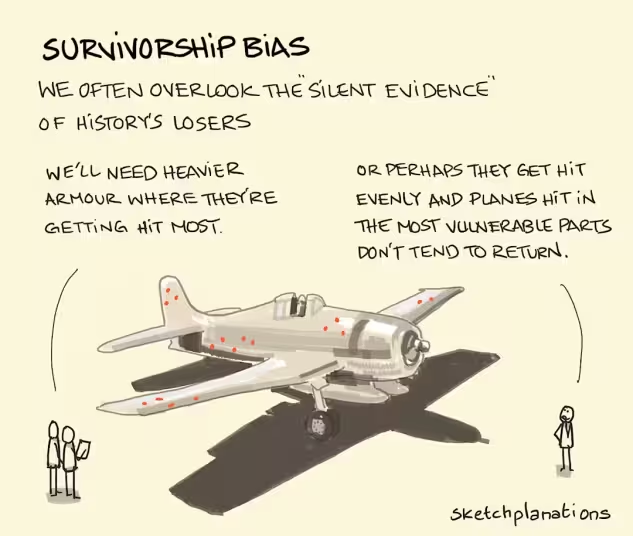
By focusing solely on 'survivors' or 'success stories' while overlooking those that didn't make it.
This bias leads to skewed conclusion and misguided decision-making, as it fails to accountnn for the hidden dangers lurking beneath the surface.
To do, finish taking notes from https://fastercapital.com/topics/understanding-survivorship-bias.html
Effects
Gell-Mann Amnesia
"Briefly stated, the Gell-Mann Amnesia effect is as follows. You open the newspaper to an article on some subject you know well. In Murray's case, physics. In mine, show business. You read the article and see the journalist has absolutely no understanding of either the facts or the issues. Often, the article is so wrong it actually presents the story backward—reversing cause and effect. I call these the "wet streets cause rain" stories. Paper's full of them.
In any case, you read with exasperation or amusement the multiple errors in a story, and then turn the page to national or international affairs, and read as if the rest of the newspaper was somehow more accurate about Palestine than the baloney you just read. You turn the page, and forget what you know." - Michael Crichton (1942-2008)
Halo
The halo effect (sometimes called the halo error) is the proclivity for positive impressions of a person, company, country, brand, or product in one area to positively influence one's opinion or feelings.[1][2] Halo effect is "the name given to the phenomenon whereby evaluators tend to be influenced by their previous judgments of performance or personality."[3] The halo effect is a cognitive bias which can prevent someone from forming an image of a person, a product or a brand based on the sum of all objective circumstances at hand.
The term was coined by Edward Thorndike. A simplified example of the halo effect is a person, after noticing that an individual in a photograph is attractive, well groomed, and properly attired, then assuming, using a mental heuristic, that the person in the photograph is a good person based upon the rules of their own social concept.[4][5][6] This constant error in judgment is reflective of the individual's preferences, prejudices, ideology, aspirations, and social perception.[7][6][8][9][10]
Lindy
Theorized, the future life expectancy of some non-perishable things, technology or ideas are proportional to their current age. The longer a period something has survived to exst or be used in the present, the longer its remaining life expectancy
Streisand

Try to hide, or otherwise draw attention away from something - only serves to attract more attention to it.
Name comes from singer/actress Barba Streisand's lawsuit against a photographer in 2003.
Kenneth Adelman (photographer), shot Californian coastline, posting the photos online, as free nonprofit images. Amongst 12,000 photos, one was Streisand's mansion.
At the time, lawsuit was filed it'd only been downloaded six times, including twice by her own lawyers, after publicization of the lawsuit and a flurry of interest - the photo was viewed more than 400,000 times.
Fallacies
Appeal to Authority
A proposition isn't made true or false on the basis of whether an authority agrees with it; propositions have an independent truth value which an authority may err in identifiyng.
Sands of scholarship shift greatly.
Quantifier shift
We all have one mother, therefore we have the same mother
Laws
Fitts
Sources used:
[mbreen](https://mbreen.com/fitts-apple/),
A model of movement in human-computer interaction and interaction.
In brief, it predicts the time required to quickly move to a target area is the function of the ratio between the distance to the target and the width of the target.
MacOS analogy
Analogy from mbreen,
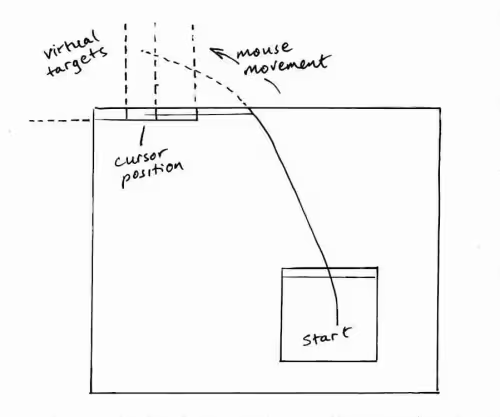
In MacOS, if your active window is near the bottom of the screen, having the menu bar at the top edge is an extremely long trek. Except, this trek is to do an extremely simple computational task.
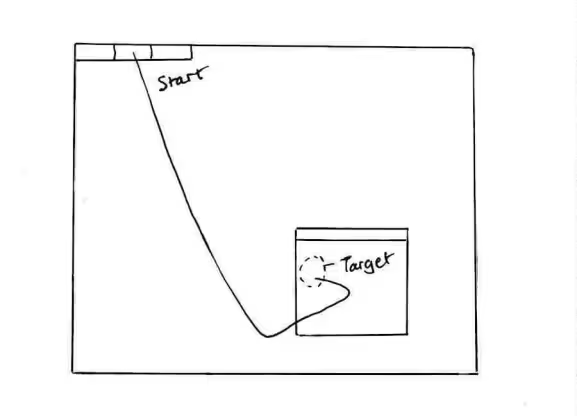
Also consider the return journey you have to make from menu bar to active window!
To-do
plan9
https://www.nngroup.com/articles/fitts-law/ https://www.interaction-design.org/literature/topics/fitts-law https://lawsofux.com/fittss-law/
https://us.humankinetics.com/blogs/excerpt/understanding-fitts-law https://careerfoundry.com/en/blog/ui-design/what-is-fittss-law/ https://www.interaction-design.org/literature/book/the-glossary-of-human-computer-interaction/fitts-s-law https://blog.hubspot.com/marketing/fitts-law https://bootcamp.uxdesign.cc/ux-design-principle-001-fitts-law-ee08dde285c5
Wirths
Software is getting slower more rapidly than hardware is becoming faster
Dunbar-s Number
Dunbar's number holds that we can only really maintain about 150 connections at once. But
Homo Economicus
John Stuart Mill's (1836) famous essay "On the Definition of Political Economy; and on the Method of Investigation Proper to It" described a hypothetical subject, whose narrow and well-defined motives made him a useful abstraction in economic analysis. At first glance it might seem that this economic man bears a striking resemblance to Ingram's and Keynes' caricatures.
According to Mill (1836, p. 321), political economy:
... does not treat of the whole of man's nature as modified by the social
state, nor of the whole conduct of man in society. It is concerned with him solely as a being who desires to possess wealth, and who is capable of judging the comparative efficacy of means for obtaining that end.
But on the same page Mill goes on to qualify this proposition strongly:
It [political economy] makes entire abstraction of every other human
passion or motive; except those which may be regarded as perpetually antagonizing to the desire of wealth, namely, aversion to labour, and desire of the present enjoyment of costly indulgences. These it takes, to a certain extent, into its calculations, because these do not merely, like other desires, occasionally conflict with the pursuit of wealth, but accompany it always as a drag, or impediment, and are therefore inseparably mixed up in the consideration of it.
Source:
The Ethology of Homo Economicus
Lemons Problem

George Akerlof, used the 'used' car market to show how asymmetry of information between buyers and sellers could cause markets to collapse, ridding any opportunity for profitable exchange and leaving behind only 'lemons' or poor products witih low durability that the buyer purchased without sufficient information
Noblesse Oblige
An early instance of this concept in literature may be found in Homer's Iliad. In Book XII, the hero Sarpedon delivers a speech in which he urges his comrade Glaucus to fight with him in the front ranks of battle. In Pope's translation, Sarpedon exhorts Glaucus thus:
'Tis ours, the dignity they give to grace The first in valour, as the first in place; That when with wondering eyes our confidential bands Behold our deeds transcending our commands, Such, they may cry, deserve the sovereign state, Whom those that envy dare not imitate!
In Luke 12:48, Jesus says: "Everyone to whom much was given, of him much will be required, and from him to whom they entrusted much, they will demand the more"
Occams Razor
Problem-solving principle, search for explanations constructed with the least possible set of things.
You should prefeer the hypothesis that requires the fewest assupmtptions

Pavlovian Response
A conditioned response, learned and involuntary coming about from previously neutral stimulus through classical conditioning
Pavlov's experiments, where dogs learned to salivate in response to a bell
Prisoner's Dilemma
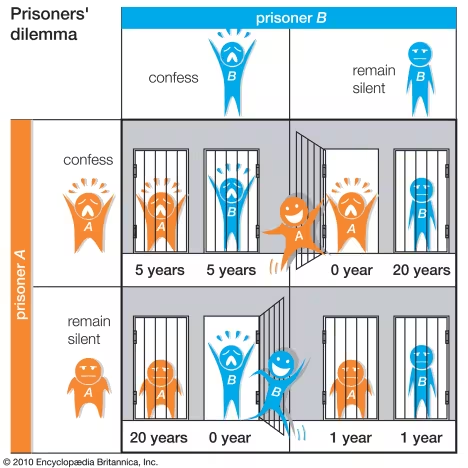
Rube Goldberg Machine
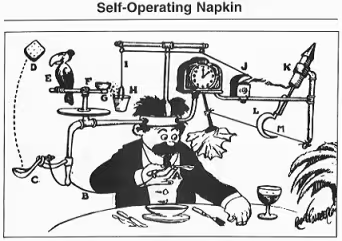
A contraption designed to perform a simple task in the most overly complex way
Savvides
Hi Christ,
Hope Paper 3 went well today.
A few rules of thumb:
People who make normative economic statements sit at opposite ends of the knowledge scale. They either don't know what they are talking about or are a leading expert.
People who talk about capitalism when they really mean the free-market, again, usually don't know what they are talking about.
Both physics and economics impact our daily lives, yet it is quite rare to find someone who is willing to stand up and make a physics claim despite not having a background/education in it. The same cannot be said of economics
When I think "economist", I think academic expert. When you see "economist" in the news, it usually means some random banker...
Of course we should always be open to alternative viewpoints and criticism. I just don't think it is sensible to go from "monopsony capitalists exploit workers", to "abolishing property rights". Especially when markets can be regulated/cooperatives are welcome to exist.
Ship of Theseus
The Ship of Theseus was a famous vessel
The ship wherein Theseus and the youth of Athens returned had thirty oars, and was preserved by the Athenians down even to the time of Demetrus Phalereus, for they took away the old planks as they decayed, putting in new and stronger timber in their place, insomuch that this ship became a standing example among the philosophers, for the logical question as to things that grow; one side holding that the ship remained the same, and the other contending it was not the same.
(Plutarch 1880, 7-8)
In his De Corpore, Thomas Hobbes followed up an ancient suggestion that the ship's original planks might have been hoarded by a collector on land and reassembled, once every part had been replaced. Hobbes offered the reassembled ship as the true original. But he may have had his tongue in his cheek about the ambiguous use of language in truth claims. It is the true original, qua material, but not qua a functioning ship.
In our case of the Ship of Theseus, we actually create two ships over time. We can look at this as creating two sets of coinciding objects. In each case, we focus on the persistent aspect and ignore the changes.
One persists as a functioning ship, ignoring the changes in matter (the planks). The other persists over time with respect to its matter. They both can claim to have preserved their identity over time with the original ship, but in different respects, the first qua functioning ship, the second qua material.
But what if both ships are seaworthy?
Sources used:
Skinner Box

Sword of Damocles

Cicero on Damocles The Roman politician and philosopher Cicero tells the famous story about the tyrant Dionysius II of Syracuse and his courtier Damocles, which he had read in the History of Timaeus of Tauromenium. The anecdote is often told as a reminder that for a powerful man, there's always danger, although the real point of the story is that happiness is fragile.
Cicero on Damocles
[5.61] Indeed this tyrant himself gave his judgment as to how fortunate he was. For when one of his flatterers, Damocles, mentioned in conversation the wealth of Dionysius, the majesty of his rule, the abundance of his possessions, the magnificence of the royal palace and denied that there had ever been anyone more fortunate, he said, "So, Damocles, since this life delights you, do you wish to taste it yourself and make trial of my fortune?"
When Damocles said that he desired this, Dionysius gave orders that the man be placed on a golden couch covered with a most beautiful woven rug, embroidered with splendid works; he adorned many sideboards with chased silver and gold; then he gave orders that chosen boys of outstanding beauty should stand by his table and that they, watching for a sign from Damocles, should attentively wait on him; there were unguents and garlands; perfumes were burning; tables were piled up with the most select foods. Damocles seemed to himself fortunate.
In the middle of this luxury Dionysius ordered that a shining sword, fastened from the ceiling by a horse-hair, be let down so that it hung over the neck of that fortunate man. And so he looked neither at those handsome waiters nor the wonderful silver work, nor did he stretch his hand to the table. Now the very wreaths slipped off. Finally he begged the tyrant that he should be allowed to depart because he no longer wanted to be fortunate.